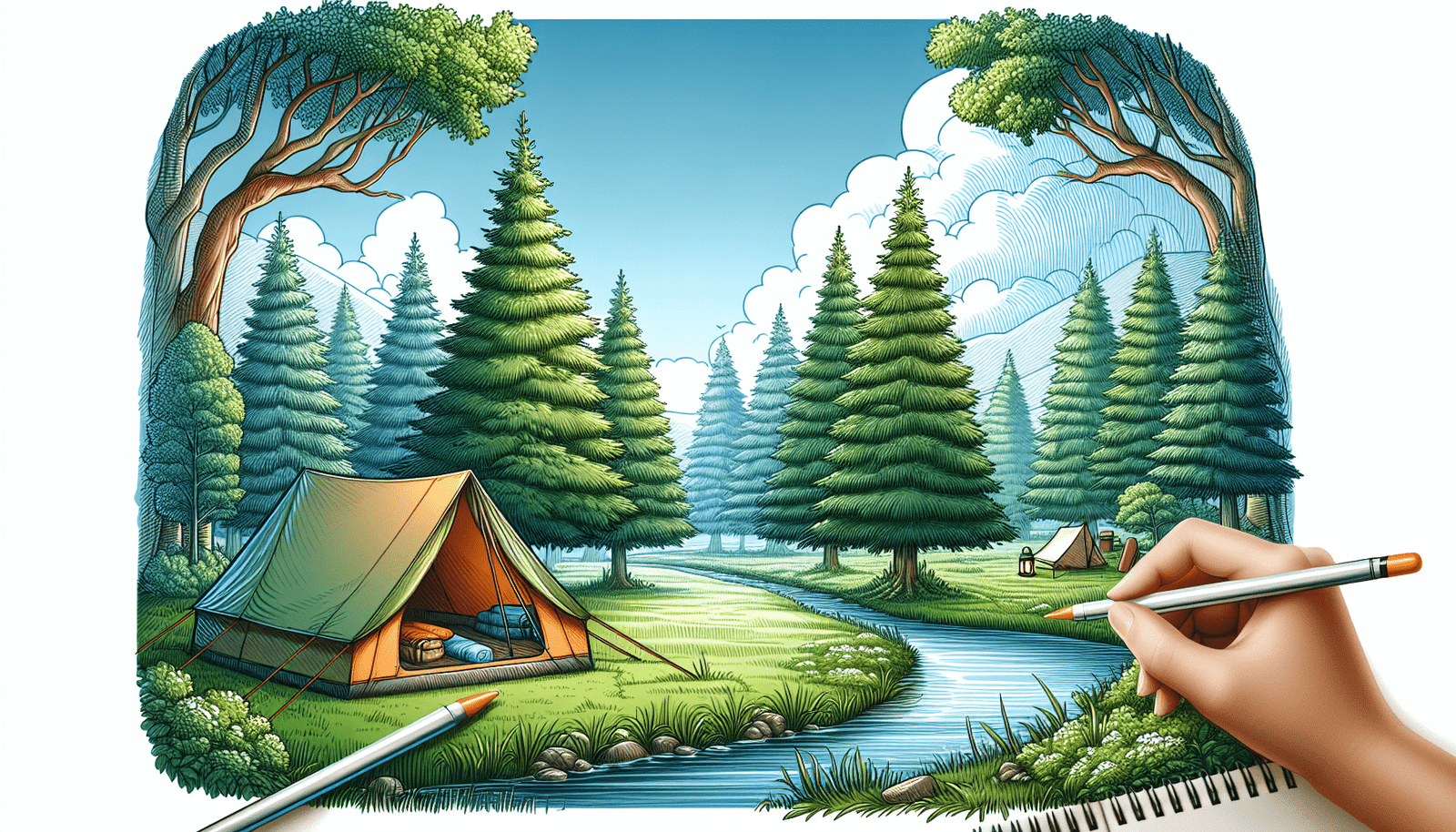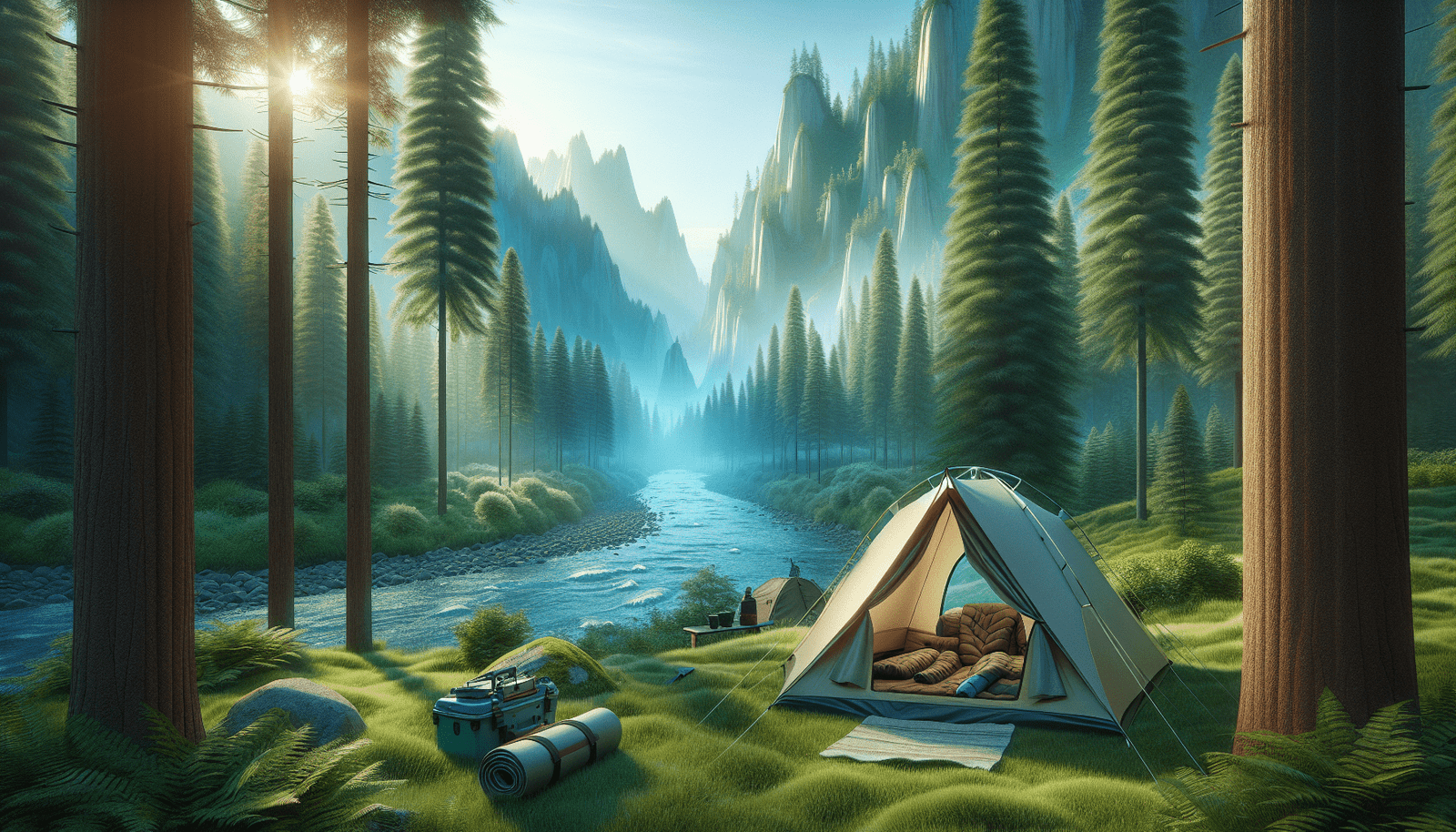How can I make camping less awful?
Camping can be a fantastic way to reconnect with nature, unwind, and create unforgettable memories. However, if done without proper preparation, it can quickly turn into an uncomfortable and miserable experience. Whether you’re an avid enthusiast or a reluctant participant, there’s always something that can make your time in the great outdoors more enjoyable. Through some practical tips and tricks, you’ll transform your camping trips from dreadful to delightful.
Choosing the Right Location
Research the Campsite
One of the first steps in ensuring a pleasant camping experience is selecting the right campsite. The site you choose can significantly impact your overall enjoyment. Utilize online resources, read reviews from fellow campers, and study maps to ensure the location fits your needs and preferences. Consider factors like proximity to water sources, bathrooms, and recreational activities.
Consider the Season
The time of year you decide to camp can play a big role in your comfort. Camping in extreme temperatures, whether too hot or too cold, can be miserable. Ideally, aim for seasons with mild weather. Check the local weather forecasts before finalizing your plans to avoid unexpected weather conditions.
Accessibility
Evaluate how easy it is to reach the campsite. If you have to hike miles through difficult terrain with heavy gear, the journey itself can become daunting. Choose a site that is accessible for everyone in your group, especially if you have kids, elderly family members, or pets.
Preparing the Right Gear
Tent Selection
Your tent is your shelter, so it’s paramount to choose one that’s right for you. Consider the following:
| Feature | Description |
|---|---|
| Size | Ensure it comfortably fits everyone |
| Seasonality | 3-season tents are versatile for most campers |
| Ventilation | Good airflow prevents condensation inside |
| Easy Setup | Quick-pitch systems save time and effort |
Sleeping Arrangements
The key to a good night’s sleep while camping is proper bedding. Opt for sleeping bags that are appropriate for the temperature you’ll be camping in. Additionally, consider investing in sleeping pads or air mattresses to avoid sleeping directly on the cold, hard ground. An inflatable pillow can also make a surprisingly significant difference in comfort levels.
Cooking Equipment
Cooking in the wild can be both fun and challenging. The right equipment streamlines the process and enhances the quality of your meals. Essentials include a portable stove or grill, fuel, lightweight pots and pans, and utensils. Don’t forget to bring a cooler with plenty of ice to keep perishables fresh.

Food and Drink Planning
Meal Prep in Advance
Preparing your meals ahead of time can save you a lot of hassle once you’re out in the wild. Simple, one-pot meals or items that can be easily grilled are ideal. Make a detailed meal plan for each day of your trip to ensure you have everything you need.
| Meal Type | Easy Options |
|---|---|
| Breakfast | Pre-made burritos, oatmeal, fruit |
| Lunch | Sandwiches, wraps, salads |
| Dinner | Pasta, soups, grilled meats/veggies |
| Snacks | Trail mix, granola bars, dried fruits |
Hydration
Always prioritize potable water. Carry enough drinking water for the entire trip, plus a bit more for safety. If your campsite has a water source, take a water filtration system or purification tablets. Staying well-hydrated will keep you energized and comfortable throughout your stay.
Storage
Keep food stored securely to prevent attracting wildlife. Use bear-proof containers and always store food away from your sleeping area. A cooler with robust insulation can keep food fresher longer, reducing the number of campsite visits.
Staying Comfortable
Clothing Choices
Dressing in layers allows you to adjust your clothing to fluctuating temperatures. Select moisture-wicking materials to stay dry, and pack both warm outer layers and lighter, breathable items. Don’t forget sturdy, comfortable footwear suited to the terrain.
Personal Hygiene
Maintaining personal hygiene can be a bit tricky while camping, but it’s vital for feeling refreshed and preventing illness. Bring biodegradable soap, a washcloth, a towel, and a small bucket for sponge baths. Hand sanitizers and wet wipes are equally invaluable.
Pest Control
Bugs can be a major annoyance, but there are ways to keep them at bay. Wear insect repellent, use citronella candles, and bring a bug net for your sleeping area if necessary. Knowledge of the local insect life can be beneficial so you’re prepared for what you might encounter.

Creating a Comfortable Campsite
Setting Up Your Tent
Choose a flat, shaded spot to pitch your tent. Ensure there are no sticks or rocks that could puncture the bottom. Spending time to smooth out the area will pay off when you’re getting a good night’s sleep.
Camp Furniture
Adding a few comforts can significantly improve the quality of your camping trip. Portable chairs and a small table can give you a spot to relax and eat that’s not the ground. Consider bringing a hammock for a serene resting spot during the day.
Campfire Management
A campfire is often the centerpiece of a camping experience. Knowing how to start and maintain one safely is crucial. Bring appropriate fire-starting materials, and always have a plan for extinguishing the fire completely before sleeping or leaving the campsite.
Enhancing the Experience
Entertainment and Activities
While the natural setting provides many entertainment options, having some additional activities planned can enrich the experience. Bring books, games, or sports equipment. Hiking, fishing, and stargazing are classic camping activities that can keep spirits high.
| Activity | Equipment Needed |
|---|---|
| Hiking | Maps, boots, backpacks |
| Fishing | Rods, tackle, bait |
| Stargazing | Telescope, star charts |
| Games | Cards, board games, frisbee |
Building a Routine
Establishing a loose routine can help you feel more settled and organized. Set specific times for meals, activities, and rest. This creates a rhythm to your days and prevents the trip from feeling chaotic.
Embrace the Unplugging
One of the great benefits of camping is disconnecting from digital devices. Embrace the opportunity to unplug and immerse yourself fully in the surroundings. Engage with nature and the people around you without the constant distraction of technology.
Handling Emergencies
First Aid Kit
Always carry a well-stocked first aid kit. Include bandages, antiseptic wipes, pain relievers, tweezers, and any personal medications you may need. Knowing some basic first aid can make a big difference in how you handle minor injuries or illnesses.
Navigation Tools
Get familiar with the area and bring maps and a compass or GPS device in case you get lost. Ensuring someone knows your itinerary and when you’re expected to return is a good safety practice.
Weather Preparedness
Weather can be unpredictable, so be ready for changes. Have rain gear handy and know where you can take shelter if things turn extreme. Following the weather forecast closely can help you stay a step ahead of adverse conditions.
Environmentally Friendly Practices
Leave No Trace Principles
Following the Leave No Trace principles ensures that you minimize your impact on the natural environment. Pack out all trash, avoid damaging plants, and stay on designated trails. Respect wildlife and other campers to preserve the campsite for future visitors.
| Principle | What It Means |
|---|---|
| Plan Ahead | Have a plan that minimizes waste and disturbance |
| Travel/Camp on Durable Surfaces | Only camp where it’s environmentally stable |
| Dispose of Waste | Pack out all garbage and use toilets provided |
| Leave What You Find | Take only photos, leave natural objects untouched |
| Minimize Campfire Impact | Use established fire rings and keep fires small |
| Respect Wildlife | Observe from a distance and don’t feed animals |
| Be Considerate | Respect other visitors’ experience |
Sustainable Practices
Choose gear and supplies that have a lesser environmental impact whenever possible. Use reusable containers, biodegradable soaps, and fuel-efficient cooking methods. Thinking sustainably can maintain the environment for future generations to enjoy.
Troubleshooting Common Issues
Dealing with Bad Weather
Rain or extreme heat can put a damper on your trip, but it’s manageable with the right preparations. Bring waterproof gear, tarps, and extra clothing layers. For hot weather, seek shaded areas and stay hydrated.
Handling Injuries or Illnesses
It’s essential to be prepared for any medical issues that arise. Familiarize yourself with basic first aid and always have your kit handy. Know the quickest route to the nearest medical facility and have emergency contact information readily available.
Addressing Unwanted Wildlife
Encountering wildlife is part and parcel of camping, but not all encounters are welcome. Storing food securely and keeping your campsite clean will reduce the likelihood of animals being attracted to your camp. Stay calm if you encounter larger animals and know the local guidelines for handling wildlife.
Conclusion
Camping doesn’t have to be an unbearable experience. By carefully planning and preparing, you can eliminate many of the discomforts and challenges that might otherwise make camping less enjoyable. Paying attention to location selection, gear, food, comfort, and safety ensures that your camping adventures are both fun and memorable. So next time, consider these tips and make your next camping trip less awful and more delightful.
